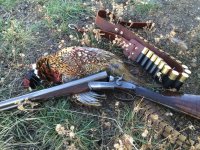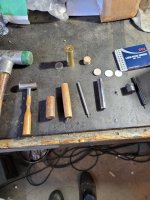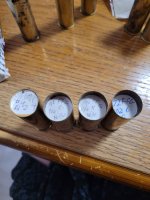Good advice, so far. Like others, I would not recommend starting out, by attempting to reload brass hulls. Though not difficult, they do require a slightly different approach, from loading plastic. Have loaded plenty of both, so do have some understanding how each differs and performs.
As IvoB recommends, it's better to master the reloading process first, before attempting to load brass hulls. In many cases, these are loaded nearly exclusively with black powder. Which again, often involves a bit different process, from loading smokeless. Also, a greater understanding how each propellant performs. Which takes some time to master. It being highly dangerous in some cases, to randomly throw shotshell components together.
Also, if loading 12 gauge brass hulls, for example...some components....like wads... are generally about one gauge larger, than standard 12 gauge. So, 11 gauge, and so on. To compensate for the difference in wall thickness. Something that won't be found at your local gunshop. All components are available. But, will need to be special ordered. Likewise: Hulls.
If you're going to start reloading shot shells, plastic would be the easiest to master. Plenty of load data available. Both in manual form. Or online: Hodgdon Reloading Data Center, for example, being an excellent resource for shotshell load data.
Components are generally readily available. Though some, like powder and primers for example, may be in limited supply, right now Also, plastic hulls are far cheaper than brass. Plus, easier to source.
One good source for plastic hulls, is to simply save your own, once-fired from factory ammo. Also: If you belong to a shooting range that features trap, etc., many times you can source a nearly unlimited supply of good, once fired hulls, that other shooters discard. Have scrounged hundreds of these, for free. Alternately, once-fired hulls are available for sale, at low cost. Depending on the hull and load, plastic hulls can often be reloaded a number of times.
As far as loading saboted shotgun rounds are concerned, it's unlikely you'll save much money, reloading your own. Unless you have a source of cheap components. Or, can make some of your own...ie: cast your own slugs, ball, etc. The real advantage of loading your own comes in the ability to tailor your reloads to attain optimum performance in your gun.
Hope this info is useful:
Al










































































